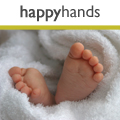Baby Clinic
Breastfeeding
What is colic?
Many new babies in the first three months suffer from prolonged crying and discomfort. It can be upsetting to see and wearing for the tired new parents, so what are the treatment options, and do they really work?
What is colic?
You will see many ‘anti-colic’ products on the shelves in stores, but in truth, no one actually knows exactly what colic is.
Doctors define colic as prolonged periods of crying over more than one or two days, in an otherwise healthy baby. And while we may not know what causes it, many parents go through this tough period with their young baby, when for hours on end each day their child seems to be inconsolable.
Some babies never seem to encounter a phase of colic, but those who do are likely to endure regular periods of painful crying and discomfort over weeks or months.
Generally, colic is believed to be associated with digestion – possibly because a new baby has an under-developed system that is still getting used to feeding, or possibly because milk-feeding can cause excessive windiness.
Has my baby got colic?
All babies cry on a daily basis – it’s a key part of their communication with you to say they’re hungry, they need changing, they are tired, they want a cuddle, and so on. But a colicky cry is very different.
• Colic usually starts to occur when a child is about three or four weeks old, and tends to last for about the first three months, when often it then passes off.
• Unlike normal crying, colicky crying manifests itself in an upset baby who seems impossible to comfort; the cry may be higher pitched and sound as if the baby is in pain. The baby may pull up his legs towards his tummy as if he feels stomach pain.
• Bouts of colic tend to occur most commonly in the evening, around teatime and leading into later evening.
What can we do about colic?
Although no-one knows exactly what causes colic, it’s worth trying these treatment options as different practices work for different babies.
• ‘Anti-colic’ feeding bottles
If your baby does seem to be affected by discomfort after bottle-feeds, try teats and bottles that claim to be ‘anti-colic’. This will mean that the design is managed to reduce the amount of air your baby is swallowing when drinking the milk. Make sure you are using the right size teat for your baby and that he isn’t trying to gulp down milk too quickly.
• Breastfeeding diet
Colic can also strike in breastfed babies, so think about what you are eating – do certain foods tend to set your baby off? Many women will happily eat lots of green veg and spicy meals without it affecting their baby at all, but do consider this and simplify your diet for a few days to observe if the condition improves.
• Change your formula
If you are bottle feeding with a formula, it might be worth trying a different brand. If you think your child may possibly be lactose intolerant (this may manifest itself windiness, eczema or diarrhoea) then speak to your GP about alternative milk options.
• Massage
Baby massage – especially as part of a soothing early evening bathtime routine – can help. If you go to a baby massage group, ask your teacher if there are particular ways in which to soothe your baby for this problem.
• Suckling
Some babies suffering colic (and later, teething) are soothed by sucking, even though for other babies this adds to their frustration. If you don’t want to bring another feed into the equation, consider offering a dummy.
• See your GP
There are some over-the-counter treatments which can ease colic, but talk to your doctor first as babies who suffer colic tend to be under the age generally recommended for medicines without prescription.
Related Articles
A Great Day Out at The Baby Show, Excel
Preparing Premature Infants for School
BornFree – the natural approach to bottles
Bottle-feeding: keeping it natural
Buyer's guide to feeding bottles
Buyer's guide to feeding teats
BabyBjörn venture into drinking cups
Related Products
Mothercare, Valencia Wooden Highchair
Related Forum Topics
Forums: Baby
Re: does any1 know anything that will help me get my baby into a better sleep routen?
clarejayne, Mother of 1, Nottinghamshire
Re: Has anyone tried Zita West's fertility supplements? Or what else worked for you?
Guider, Mother of 1, Leicestershire
Re: fussy eater
Clare, Mother of 2, London
Re: Try this perfect family lunch in Hyde Park
Clare, Mother of 2, London
Have Your Say
Be the first person to comment on this article, just post a comment below.






In order to post a comment you need to be a member. Join Now | Sign in